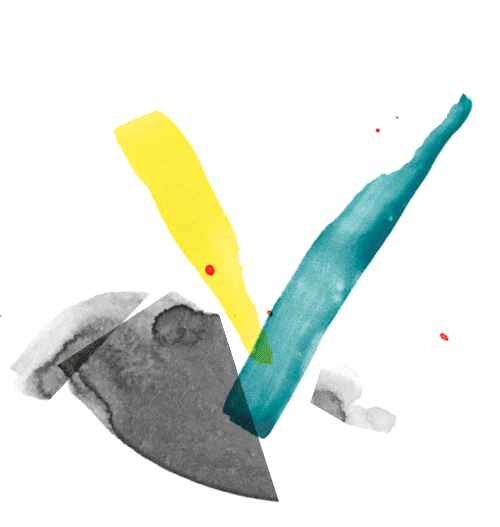

Sign up for our newsletters. You can change the settings or unsubscribe at any time.
Thank you for your subscription. We have sent you an e-mail with a confirmation link.


exp. 1
exp. 2
exp. 3

Documentation
exp. 1: The Bones of the World
Das Archiv schweigt. Nicht. [The archive remains silent. Not.], Die Remise – activation by Çiçek Bacık and Miriam Schickler, 31.10.2019
Discussion with Çiçek Bacık (Daughters and Sons of Gastarbeiters), Saraya Gomis (teacher), Markus Schega (director Nürtingen elementary school), Miriam Schickler, and Tuğba Tanyılmaz (project manager i-Päd Initiative intersektionale Pädagogik [Initiative for Intersectional Education]) In German
In 2018 Miriam Schickler reviewed the written archive of the Nürtingen elementary school in today’s Berlin-Kreuzberg with a special focus on the history of migration. The archive consists of the school chronicle beginning in 1945 and conference minutes from the 1950s to the 1970s. These are testimonies of the majority society, which are informative in regard to dominant delineations of the migrant “other.” The voices of those who are talked about do not appear: people who came to the primary school as “foreign” school children from the 1960s onwards, who represented 80 percent of the school children from the 1970s, and whose children and grandchildren continue to attend the Nürtingen elementary school today.
In order to activate the Nürtingen archive, Çiçek Bacık and Miriam Schickler invite various protagonists. They fill the gaps in the archive with their own positioning and experience. From their working practice, they talk about continuities and discontinuities in the discourses on racism in Berlin schools. Which discourses prevail in regard to the children of migrant workers? What role did the school authorities and local politics play? What were the attitudes of educators and school administrators towards racism in schools at the time? How do they position themselves today against increasing incidents of discrimination at the school and in the battle against racism?
Camera: Thabo Thindi, sound: Paolo Combes
I: Junto a las curadoras de la XI Berlin Biennale for Contemporary Art
Renata Cervetto, Lisette Lagnado
Conversation
II: La Solidaridad va Más Allá de un Concepto. Entre las Curadoras de la XI Berlin Biennale
Lisette Lagnado, Agustín Pérez Rubio
Conversation
St Sara Kali George
Delaine Le Bas
Soundscape
Fragments of the Artist’s Diary, Berlin 11.2019–1.2020
Virginia de Medeiros
Diary
Invitation to the Species: Cecilia Vicuña
Tamaas / Cecilia Vicuña
Podcast
Maternidades subversivas
María Llopis
Monograph
By using this website you agree to the use of cookies in accordance with our data privacy policy.

Documentation
exp. 1: The Bones of the World
Das Archiv schweigt. Nicht. [The archive remains silent. Not.], Die Remise – activation by Çiçek Bacık and Miriam Schickler, 31.10.2019
Discussion with Çiçek Bacık (Daughters and Sons of Gastarbeiters), Saraya Gomis (teacher), Markus Schega (director Nürtingen elementary school), Miriam Schickler, and Tuğba Tanyılmaz (project manager i-Päd Initiative intersektionale Pädagogik [Initiative for Intersectional Education]) In German
In 2018 Miriam Schickler reviewed the written archive of the Nürtingen elementary school in today’s Berlin-Kreuzberg with a special focus on the history of migration. The archive consists of the school chronicle beginning in 1945 and conference minutes from the 1950s to the 1970s. These are testimonies of the majority society, which are informative in regard to dominant delineations of the migrant “other.” The voices of those who are talked about do not appear: people who came to the primary school as “foreign” school children from the 1960s onwards, who represented 80 percent of the school children from the 1970s, and whose children and grandchildren continue to attend the Nürtingen elementary school today.
In order to activate the Nürtingen archive, Çiçek Bacık and Miriam Schickler invite various protagonists. They fill the gaps in the archive with their own positioning and experience. From their working practice, they talk about continuities and discontinuities in the discourses on racism in Berlin schools. Which discourses prevail in regard to the children of migrant workers? What role did the school authorities and local politics play? What were the attitudes of educators and school administrators towards racism in schools at the time? How do they position themselves today against increasing incidents of discrimination at the school and in the battle against racism?
Camera: Thabo Thindi, sound: Paolo Combes
Maternidades subversivas
María Llopis
Monograph
COVID-19 VIDEOS
Carlos Motta
Video
O Bailado do Deus Morto
Flávio de Carvalho
Play
Solidarity and Storytelling. Rumors against Enclosure
María Berríos
Essay
Grupo Experimental de Cine en acción
Gabriel Peluffo
Drawing
Memorial to the Sinti and Roma Victims of National Socialism
Dani Karavan
Memorial
By using this website you agree to the use of cookies in accordance with our data privacy policy.

Documentation
exp. 1: The Bones of the World
Das Archiv schweigt. Nicht. [The archive remains silent. Not.], Die Remise – activation by Çiçek Bacık and Miriam Schickler, 31.10.2019
Discussion with Çiçek Bacık (Daughters and Sons of Gastarbeiters), Saraya Gomis (teacher), Markus Schega (director Nürtingen elementary school), Miriam Schickler, and Tuğba Tanyılmaz (project manager i-Päd Initiative intersektionale Pädagogik [Initiative for Intersectional Education]) In German
In 2018 Miriam Schickler reviewed the written archive of the Nürtingen elementary school in today’s Berlin-Kreuzberg with a special focus on the history of migration. The archive consists of the school chronicle beginning in 1945 and conference minutes from the 1950s to the 1970s. These are testimonies of the majority society, which are informative in regard to dominant delineations of the migrant “other.” The voices of those who are talked about do not appear: people who came to the primary school as “foreign” school children from the 1960s onwards, who represented 80 percent of the school children from the 1970s, and whose children and grandchildren continue to attend the Nürtingen elementary school today.
In order to activate the Nürtingen archive, Çiçek Bacık and Miriam Schickler invite various protagonists. They fill the gaps in the archive with their own positioning and experience. From their working practice, they talk about continuities and discontinuities in the discourses on racism in Berlin schools. Which discourses prevail in regard to the children of migrant workers? What role did the school authorities and local politics play? What were the attitudes of educators and school administrators towards racism in schools at the time? How do they position themselves today against increasing incidents of discrimination at the school and in the battle against racism?
Camera: Thabo Thindi, sound: Paolo Combes
By using this website you agree to the use of cookies in accordance with our data privacy policy.

Documentation
exp. 1: The Bones of the World
Das Archiv schweigt. Nicht. [The archive remains silent. Not.], Die Remise – activation by Çiçek Bacık and Miriam Schickler, 31.10.2019
Discussion with Çiçek Bacık (Daughters and Sons of Gastarbeiters), Saraya Gomis (teacher), Markus Schega (director Nürtingen elementary school), Miriam Schickler, and Tuğba Tanyılmaz (project manager i-Päd Initiative intersektionale Pädagogik [Initiative for Intersectional Education]) In German
In 2018 Miriam Schickler reviewed the written archive of the Nürtingen elementary school in today’s Berlin-Kreuzberg with a special focus on the history of migration. The archive consists of the school chronicle beginning in 1945 and conference minutes from the 1950s to the 1970s. These are testimonies of the majority society, which are informative in regard to dominant delineations of the migrant “other.” The voices of those who are talked about do not appear: people who came to the primary school as “foreign” school children from the 1960s onwards, who represented 80 percent of the school children from the 1970s, and whose children and grandchildren continue to attend the Nürtingen elementary school today.
In order to activate the Nürtingen archive, Çiçek Bacık and Miriam Schickler invite various protagonists. They fill the gaps in the archive with their own positioning and experience. From their working practice, they talk about continuities and discontinuities in the discourses on racism in Berlin schools. Which discourses prevail in regard to the children of migrant workers? What role did the school authorities and local politics play? What were the attitudes of educators and school administrators towards racism in schools at the time? How do they position themselves today against increasing incidents of discrimination at the school and in the battle against racism?
Camera: Thabo Thindi, sound: Paolo Combes
III: La familia son quiénes se alegran con nuestros actos diarios. Detrás de las curadoras de la XI
María Berríos, Agustín Pérez Rubio
Conversation
Fragments of the Artist’s Diary, Berlin 11.2019–1.2020
Virginia de Medeiros
Diary
Teatro da Vertigem
Monograph
A World Without Bones
Agustín Pérez Rubio
New Look
Flávio de Carvalho
Performance
Solidarity and Storytelling. Rumors against Enclosure
María Berríos
Essay
By using this website you agree to the use of cookies in accordance with our data privacy policy.
By using this website you agree to the use of cookies in accordance with our data privacy policy.




